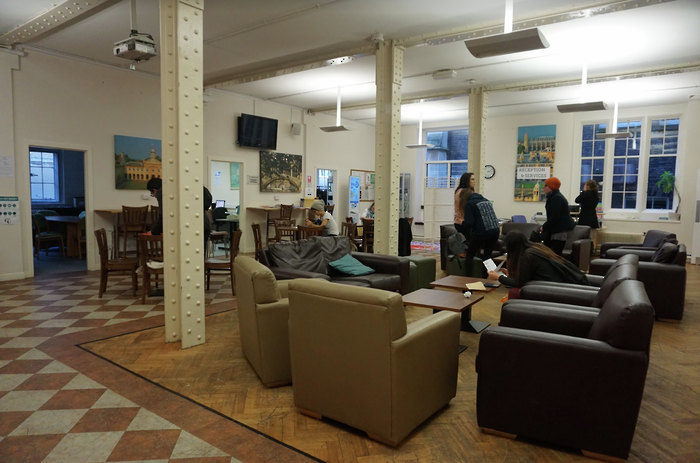The UK is risking its superpower status in higher education
As a result of both Brexit and policies towards international students, the UK’s lead in the sector is under threat, says Lucy Fairweather

The UK is home to one of the most successful higher education sectors anywhere in the world. Despite representing less than one percent of the world’s population, it publishes 16% of the world’s highly cited research papers. More world leaders have studied in the UK than in any other country, and the UK regularly dominates world rankings not just with Oxford and Cambridge, but with universities such as UCL, LSE and Manchester.
For all the talk of restoring Britain to some previous greatness or world-power status, it is clear that when it comes to higher education, Britain is already punching well above its weight. However, through our changing attitudes towards international education, we are at risk of jeopardising this.
The effects of Brexit are part of the problem, especially the potential withdrawal of research funding from the EU. Take the Horizon 2020 programme, which funds science research. Although the government has guaranteed funding for this programme up to 2020, little is known about a replacement for the money from this project in the future. The UK was the second largest recipient of Horizon funding between 2014-2016, and losing access to it could threaten the confidence of academics to begin new research projects in the UK if they don’t have access to funds available elsewhere in Europe. Concerns about the residency of Britain’s 35,920 academics from EU countries are justified too: the case of UCL academic Mariana Mazzucato made headlines recently after her application for permanent residency was turned down, despite her having lived in the UK for 20 years and having four British children. While immigration officials have blamed a credit card problem with her application fee, the fact her passport was kept for six months is just another example of how residency can be made difficult for academics we should be desperately trying to keep. Last year it was reported that 95% of UCL’s senior researchers from EU countries had been approached by other European universities. Cambridge is already being affected by the so-called ‘Brexit brain drain’, with 184 staff from the EU leaving in 2017, up 35% on 2014-15.
“For all the rhetoric about a global and open Britain, our actions towards international students can seem to suggest that it is quite the opposite”
The position of EU students is in doubt too. In the year 2016-17, 138,000 EU students studied at UK universities, and paid the same £9,250 undergrad fees with the same access to take out a government loan. For students beginning their degrees beyond 2019, it is not known whether they will be treated like other international students, being charged as much as £30,000 a year for some courses such as engineering and sciences.
This will make UK universities significantly more expensive than their continental counterparts, with one report estimating that a harmonisation of the rules for EU and non-EU students could reduce EU student enrolments by over 31,000, amounting to a net loss of £40 million for the higher education sector in the first year, even after the new higher fees of the remaining students are taken into account. Beyond just money, it would also constitute a loss of potential future academics, weakening Britain’s status as a research powerhouse.
Beyond Europe, the situation for international students is similarly unsure. There are even larger numbers of non-EU students in the UK (over 300,000) and their attendance is a vital part of funding UK universities, as they pay higher fees without government loans. The government also abandoned the post-study visa in 2012, making the UK a far less attractive country in which to study compared to the US and Canada, countries which allow students to stay for three years after graduating, and Australia, which allows them four. This seems like a huge own-goal given existing shortages in STEM subjects. For all the rhetoric about a global and open Britain, our actions towards international students can seem anything like that.
While there have been areas where Britain’s power and influence have atrophied, the higher education sector is not one of them. We should be proud of the achievements of our universities, especially their global influence and international composition. We should be supporting a sector that generates £95 billion for the UK economy, not actively hindering it.
If Britain still wants to be a higher education superpower, it needs to welcome international students and academics, instead of being actively hostile towards them. Brexit already puts the our universities at risk. Government policy should be aimed at trying to mitigate the negative effects of this, rather than exacerbating them.
 Interviews / You don’t need to peak at Cambridge, says Robin Harding31 December 2025
Interviews / You don’t need to peak at Cambridge, says Robin Harding31 December 2025 News / Downing investigates ‘mysterious’ underground burial vault 29 December 2025
News / Downing investigates ‘mysterious’ underground burial vault 29 December 2025 News / Unions protest handling of redundancies at Epidemiology Unit30 December 2025
News / Unions protest handling of redundancies at Epidemiology Unit30 December 2025 Lifestyle / Ask Auntie Alice29 December 2025
Lifestyle / Ask Auntie Alice29 December 2025 Features / ‘Treated like we’re incompetent’: ents officers on college micromanagement30 December 2025
Features / ‘Treated like we’re incompetent’: ents officers on college micromanagement30 December 2025









